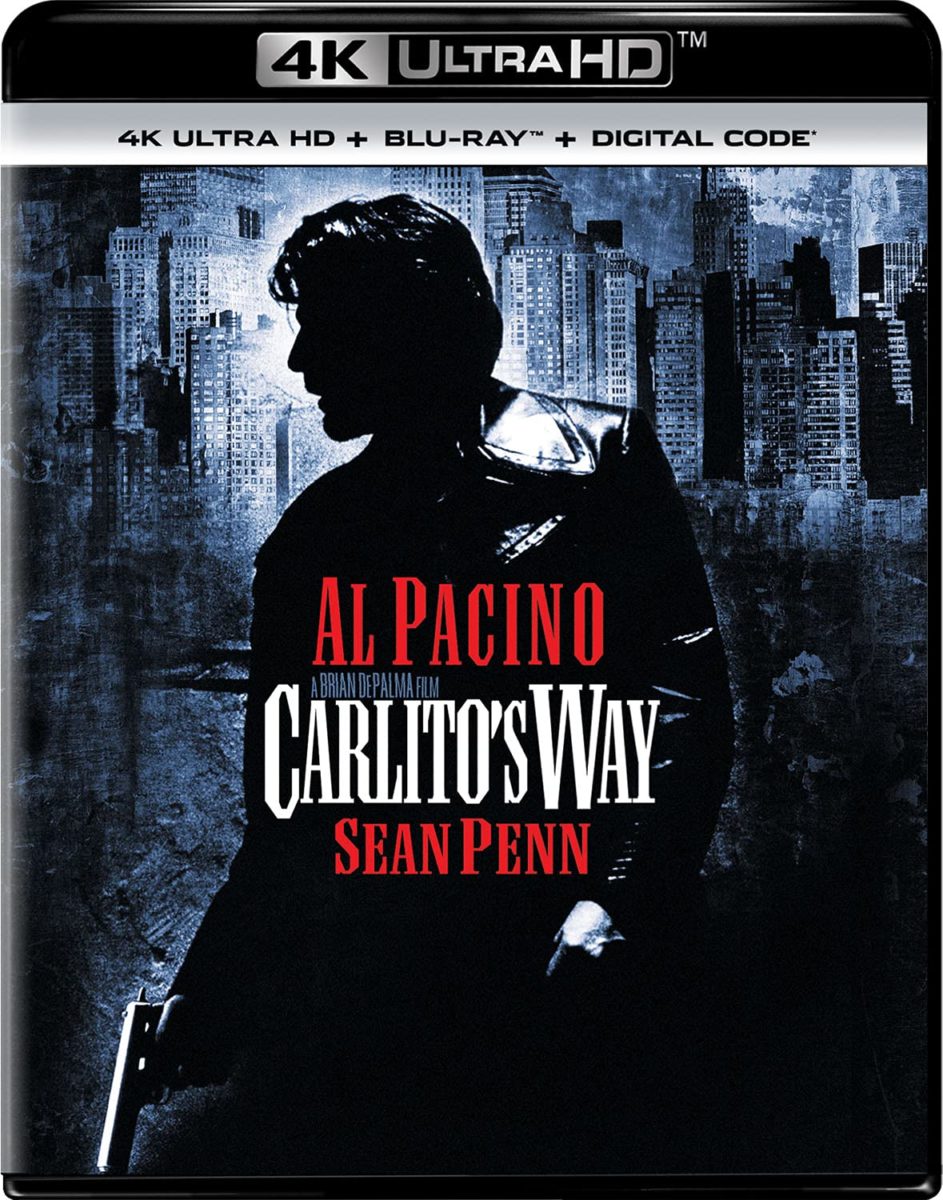The holidays are upon us, so whether you looking for film-related gifts or simply want to pick up some of the finest the year had to offer in the category for yourself, we have a gift guide for you. Including must-have books on filmmaking, the best from the Criterion Collection, Kino Lorber, and more home-video picks, subscriptions, magazines, music, and more, dive in below.
4K & Blu-ray Box Sets

There’s no better gift for a cinephile than a beautiful Blu-ray box set. Leading the pack in this regard is a collection that actually arrived much earlier this year: World of Wong Kar-wai, the long-awaited Criterion release that features the Hong Kong master’s most celebrated works, along with the first U.S. release of his short The Hand. Another must-own trio of sets from Criterion: Melvin Van Peebles: Essential Films, featuring four bold films from the late director, The Signifyin’ Works of Marlon Riggs (which we wrote about here), and the recently released Once Upon a Time in China set.
We also highly recommend the first volume of a Ken Jacobs collection from Kino Lorber, featuring a number of the experimental director’s greatest works. For those looking to brush up on classic Hollywood, they’ve also put out Audrey Hepburn and Carole Lombard collections. A Randolph Scott Western Collection, featuring films by Budd Boetticher, Andre de Toth, Charles Vidor, and more, is also an essential addition to anyone’s library. There’s also perhaps the most notable blockbuster 4K set this year with the Indiana Jones 4-Movie Collection, which will get outdated soon with a fifth film in the series around the corner, but is especially fascinating nonetheless considering the color-grading changes on Crystal Skull.
Books
Christopher Schobert, our resident book expert, has compiled his favorite filmmaking books of the year. Happy reading!
David Fincher: Mind Games by Adam Nayman (Abrams)

“The films of David Fincher are filled with dangerous games and apex predators,” writes Adam Nayman at the start of Mind Games. “It’s there, in the space between focus and understanding—between metaphysical mystery and high-definition clarity, between control and its limits—that David Fincher invites us to play mind games.” Following his masterful, colorful examinations of the Coen Brothers and Paul Thomas Anderson, Nayman has unleashed another gem, one as probing and wise as Fincher himself. Mind Games features a lovely foreword by Bong Joon-ho before diving into the deep end of all things Fincher—music videos, commercials, TV work, and every feature from Alien 3 to Mank. For me, reading Mind Games was a deeply personal, even eye-opening experience. Example: Nayman has caused me to rethink my long-simmering upset that Fincher was unable to revisit Lisbeth Salander in a sequel to The Girl With the Dragon Tattoo. As Nayman puts it, Tattoo’s “incredibly sharp, abrupt fade-out” may have been designed to be continued, but gains greater power by remaining our final moment with Fincher and Rooney Mara’s Lisbeth: “A case can be made that this was the best possible outcome not only for Fincher, no longer bound to a franchise likely to bring diminishing returns, but for the film, which paradoxically gains a certain standalone integrity for remaining so open-ended.” Hopefully the latter example demonstrates this is the book Fincher-ites have been wanting for years. It was worth the wait.
SPIKE by Spike Lee (Chronicle Chroma)
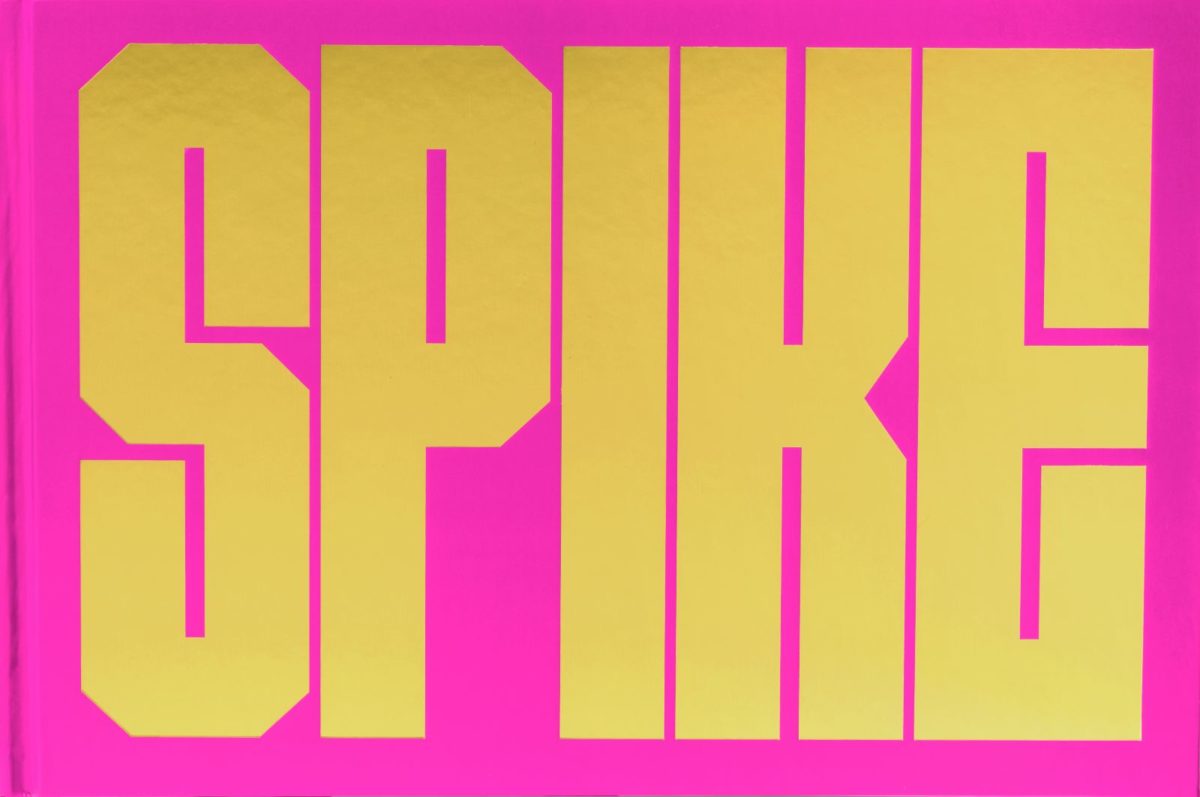
While a Spike Lee memoir would certainly be desirable, a photo-packed hardcover book seems even more fitting. After all, there are few filmmakers whose work packs as seismic a visual punch. From the front cover—“SPIKE” fills the space in gold lettering, against a hot pink background—to the final page, Chronicle Chroma’s SPIKE is a big, bold powerhouse. Each Lee film is presented with a few quotes from the director followed by behind-the-scenes photos and still, many of them featuring additional comments from Lee. The most tantalizing tidbit here is, rather unexpectedly, a single line preceding the section exploring one of Lee’s most-maligned works, 2013’s Oldboy: “One Day, Hopefully, My Version Of Oldboy Will See The Light Of Day.” The existence of a much-lengthier cut has been discussed before, but this new mention from the director himself should serve to cause some additional conversation.
The Florida Project by J.J. Murphy (University of Texas Press)
The 21st Century Film Essentials series from University of Texas Press is fast becoming, well, essential. The latest release, J.J. Murphy’s extensive exploration of The Florida Project, is a marvelous guide to the making and understanding of an important film. Sean Baker’s Florida is a strong choice for such a take. Murphy recounts how the film started with an idea from co-screenwriter Chris Bergoch, where the title came from (Bergoch, in an email to Baker: “When Walt Disney was keeping his plans for [Walt Disney World] under wraps, way before it opened in 1971, its code name was ‘The Florida Project’ … so that’s what I will refer to this project as from now on”), and how the film’s extraordinary cast of mostly unknowns was discovered. Rarely has a recent independent success been so meticulously and entertainingly explored.
Fun City Cinema: New York City and the Movies That Made It by Jason Bailey (Abrams Books)
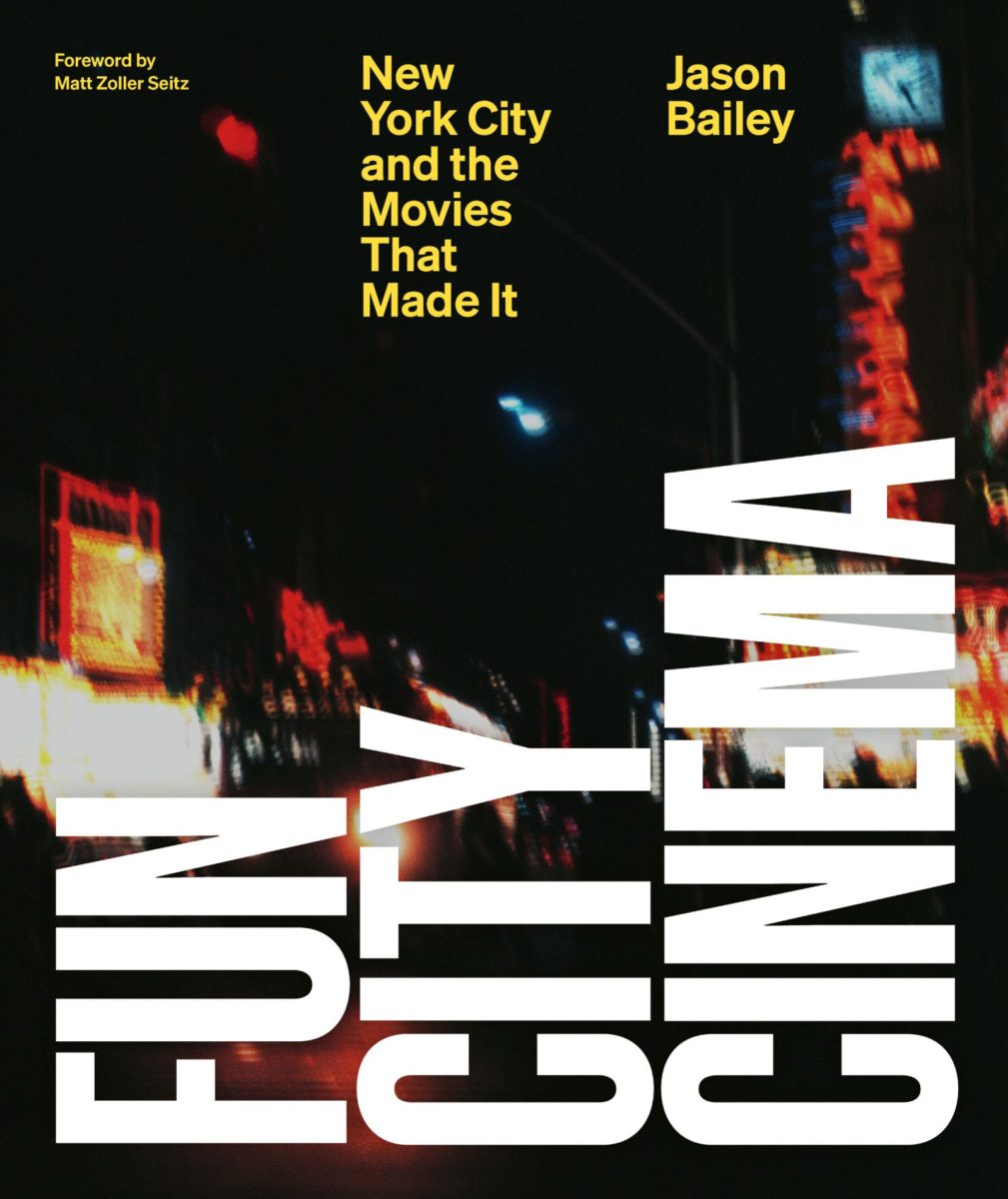
Billed as a visual history of a century of filmmaking in New York City, Fun City Cinema is the book NYC deserves, Jason Bailey without question the right author for the job. As he showed in books on Richard Pryor and 1970s detective pictures, Bailey is adept at analyzing why certain films and individuals make such a deep impact on the cultural and artistic landscape. Fun City Cinema might be his most ambitious yet—large-scale, photo-heavy, and featuring not just the likes of Midnight Cowboy and Taxi Driver, but also films like delightful 1953 oddity Little Fugitive, Claudia Weill’s groundbreaking Girlfriends, even Bill Murray’s Quick Change. Here is Bailey on the lattermost, specifically the links between Murray’s makeup-clad bank Robber and Jason Robards’ chief of police: “These two men may be on opposite sides of the law, and in the midst of perhaps the most stressful situation of their lives. And yet they’re bound by two things: They hate the city, and they can’t believe anyone is trying to change it.”
Inland Empire by Melissa Anderson (Fireflies Press)
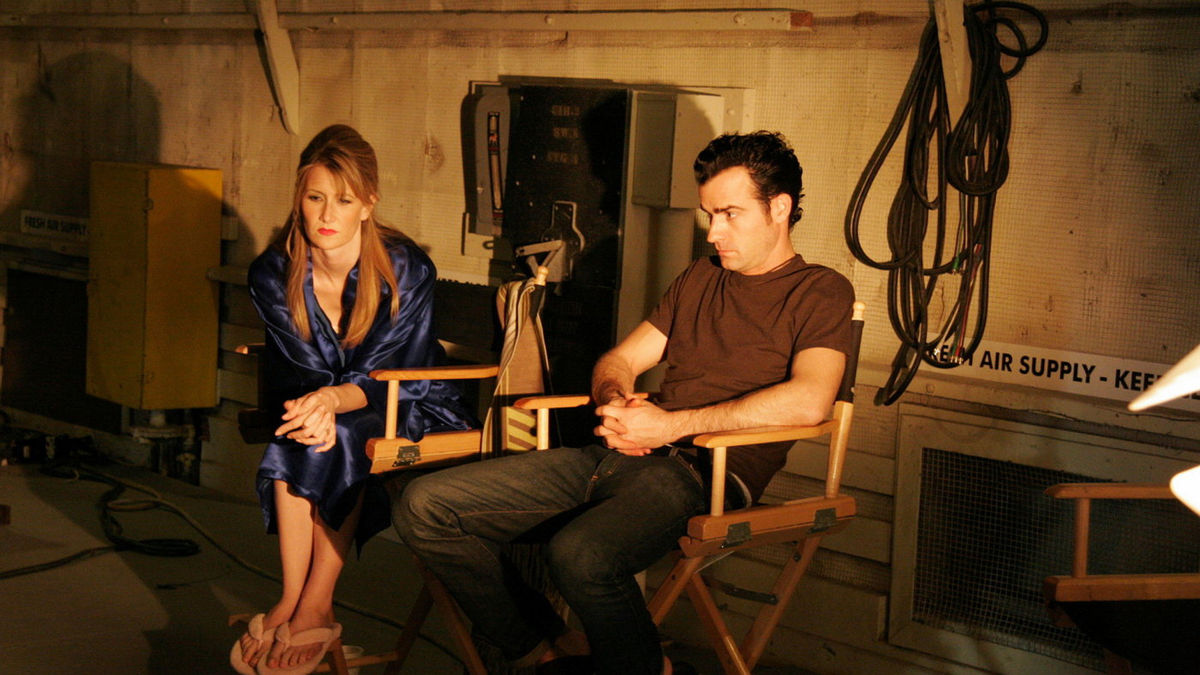
One of the more welcome debuts in 2021 has been Fireflies Press’ Decadent Editions, a 10-book series on one films for each year of the 2000s. Following breathtaking studies of Goodbye, Dragon Inn and Ten Skies comes Melissa Anderson’s tremendously profound consideration of David Lynch’s Inland Empire. While Anderson discusses Empire’s place in the Lynch oeuvre, she finds the more astute path to understanding is centered on star Laura Dern—“through the lens of ‘acteurism.’” In Empire, “the most free-associative, nonlinear movie in the director’s singular corpus, the actress must repeatedly perform the fragmenting or slippage of multiple identities.” It is a performance wherein Dern must “consistently fall apart but not completely shatter.” Anderson ties the Oscar winner’s work here to her earlier Lynch roles, as well as the position occupied by actors like Dern in post-Weinstein Hollywood. She provides Dern—and the all-too-often unheralded Inland Empire—with much-deserved appreciation.
Billy Wilder on Assignment edited by Noah Isenberg, translated by Shelley Frisch (Princeton University Press)
There is no question that Billy Wilder on Assignment is the most historically important recent book exploring the early days of a major filmmaker. It compiles, for the first time, Wilder’s writings as a young freelance reporter in 1920s Berlin and Vienna. The result is an incredible glimpse of Wilder’s mind at a key age. Of particular interest to cinephiles is his coverage of the likes of Erich von Stroheim. Here is but one example from this truly stunning collection, in which he analyzes why Hollywood was enthralled with a director who spent oodles of studio dollars: “Out of respect for his unique skills, people even buy into his moods. They don’t let him go. Perhaps they’re ashamed of being surrounded by so much levelheadedness. But now we have Chaplin and ‘Von,’ two geniuses full of caprices and quirks—marvelous, isn’t it? Just like in Europe.”
Films of Endearment: A Mother, a Son and the ’80s Films That Defined Us by Michael Koresky (Hanover Square Press)
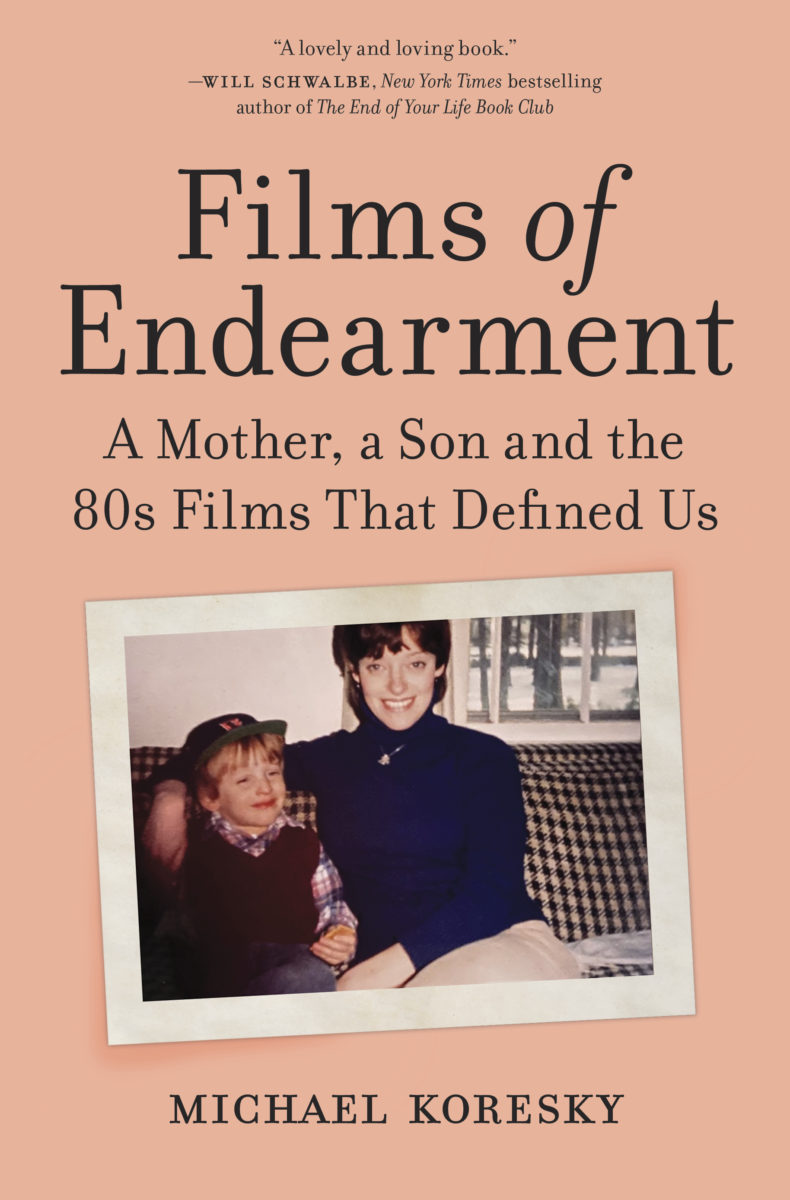
“So much of what I have long known about my mother is from anecdotes connected to the movies,” writes Michael Koresky in his memoir, Films of Endearment. It is a deeply personal book––funny, emotional, and very, very smart––and anyone who connected with a parent through cinema will identify. Koresky uses films as a framing device. These are female-driven stories of strong protagonists, like Nine to Five, Aliens, Terms of Endearment, and even Mommie Dearest. Meanwhile, Koresky documents his mother’s life and outlines his own, stopping along the way to ponder the careers of the likes of Michelle Pfeiffer: “Pfeiffer’s reputation for being private and stand-offish, an understandable defense mechanism in an industry that judges people based on looks, has only deepened the sense of an actor selectively and successfully cultivating her image.” This is an extraordinarily moving book, and one I look forward to reading again. Any film die-hard will identify with Koresky’s thoughts near the book’s end: “It has always annoyed me when someone tells me I talk about movies too much. My response is that talking about movies is talking about life.”
Cinemaphagy: On the Psychedelic Classical Form of Tobe Hooper by Scout Tafoya (Miniver Press)

In Cinemaphagy, Scout Tafoya assesses the work of the great Tobe Hooper with intelligence, humor, and curiosity. (I love this definition, found at the book’s start: “Sarcophagy, noun plural sar·coph·a·gy \särˈkäfəjē\ the practice of feeding on flesh.”) Intelligence, humor, and curiosity can all be evidenced in Hooper’s approach to horror, from The Texas Chain Saw Massacre and Salem’s Lot to Lifeforce and his later Masters of Horror efforts. In the book’s introduction, Tafoya explains his thought process behind writing on Hooper, whose “negligible legacy deserved reinforcement, how his work as an artist was overlooked by a culture that despised horror film and its outré signifiers and tonal register, about a director who practically in secret kept alive a rich tradition of effulgent Hollywood film grammar.” Indeed, Cinemaphagy serves as both a reminder of Hooper’s talent and importance and a skillful analysis of a strange career. Tafoya’s comparisons of Texas Chain Saw to Maya Deren’s At Land and his defense of Hooper’s much-maligned The Mangler (“there is nothing wrong with The Mangler that can’t be explained by a lack of money”) show the author is the passionate investigator that his subject deserves.
Mike Nichols: A Life by Mark Harris (Penguin Press)
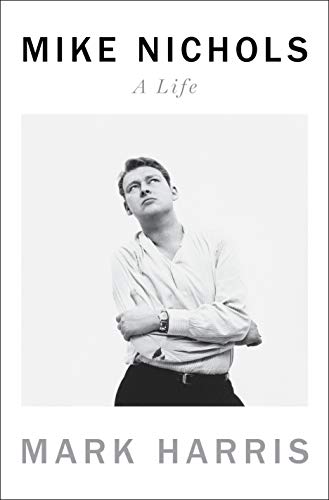
Will there be a finer, more compelling biography in 2021 than Mike Nichols: A Life? I tend to doubt it, as Mark Harris’ study of the career of the Berlin-born, Nichols-and-May comic genius turned Broadway and Hollywood heavyweight rivals the author’s previous modern classics: Pictures at a Revolution: Five Movies and the Birth of the New Hollywood and Five Came Back: A Story of Hollywood and the Second World War. Nichols was the subject of a fine oral history in 2019 (covered here), but A Life adds extraordinary levels of detail. There are moments that are simply unforgettable. These include the comment that ended his working relationship with George C. Scott (“Slap on your wig and get your ass down here,” Scott coldly told Nichols, who always felt vulnerable about his hairpiece), and the moment Nichols realized that Catch-22 was doomed to be overshadowed by Robert Altman’s M*A*S*H. Moments like these make the book that rare bio in which the reader truly feels as if deep intimacy has been developed with a complex figure. It is, without question, a masterpiece. For more on the book, check out The Film Stage contributor David Stewart’s recent interview with Harris. As the author told Stewart, “[Nichols] was profoundly collaborative, was genuinely interested in writers, actors, in working with other people together to create something, and who followed his passion for the work itself and particular pieces of material. … It’s very moving to me that Mike lived his entire career that way.”
Games, Music & More
Cinephile: Action Pack

If you’ve been enjoying our recurring Cinephile Game Nights, then you surely already have your own Cinephile deck. The perfect addition to the game comes with the new Action Pack expansion, featuring 25 new cards spanning all corners of action cinema. We won’t spoil all the new faces, but you can take a guess with the list of films featured.
Licorice Pizza OST on Vinyl

If Paul Thomas Anderson’s Licorice Pizza hasn’t been delivered to your city yet, an ideal primer is here. Coming out on December 10 on vinyl, the 20-song soundtrack includes cuts by Nina Simone, David Bowie, The Doors, Sonny & Cher, Chuck Berry, Donovan, Paul McCartney, Gordon Lightfoot, Taj Mahal, Mason Williams, and many more. Of course, PTA has also continued his collaboration with Jonny Greenwood, who has snuck in there with a single title track.
Annette Unlimited Edition OST
The glow has not faded from Leos Carax’s Annette, which—if we’re really measuring these things—further certified its greatness as a year of white elephants, near-misses, and just-okays proceeded apace. While we await a Blu-ray release / hope the recent Amazon-Criterion union finds its logical manifestation, a bit more to feed the maw left by this earworm of a film: Sparks have released an expanded soundtrack, their tracklist ballooning from manageable 15 to overwhelming 63—spoken-word bits, Greek Chorus overdubs, and (most enticing for us superfans) the band’s early demos creating a more complete experience. The sublime in-film “So May We Start” will have to reside there, or just on YouTube with Spanish subtitles. – Nick N.
Nebula Projector

One of my favorite purchases this past year was the Nebula Capsule Projector, which is merely the size of a soda can. While the quality certainly doesn’t match a 4K TV set-up, it’s great bedroom TV viewing (especially if you have an unadorned white wall) or for on-the-go viewing (this summer, I packed it on a weekend trip with friends and the majority of them bought one for themselves right after).
Support Your Local Theater
As the future of theatrical distribution, especially in the indie realm, continues to find a footing amidst the pandemic, local arthouse theaters need your support more than ever. While some continue to offer Virtual Cinema selections that benefit the theater, don’t forget to pick up a membership or gift certificate. Be sure to check out your local arthouse theater to see what they offer this season.
Streaming Service Subscription
After you’ve helped out your local theater, consider a select few streaming services who care a great deal about preserving the art form of cinema. One can’t beat the variety and quality found at the Criterion Channel, while MUBI continually champions bold filmmaking voices both old and new. For those seeking even more worthwhile gems from across the world, OVID.tv continually presents an eclectic lineup. With these three services, one can not only cut all the cable cords, but also unsubscribe from the plethora of offerings that are more about quantity than quality.
Combining the above two categories, we also recommend a Metrograph membership, which only runs $50 a year and not only includes a number of top-notch streaming offerings, but $7 off in-theater tickets as well.
Film Magazines
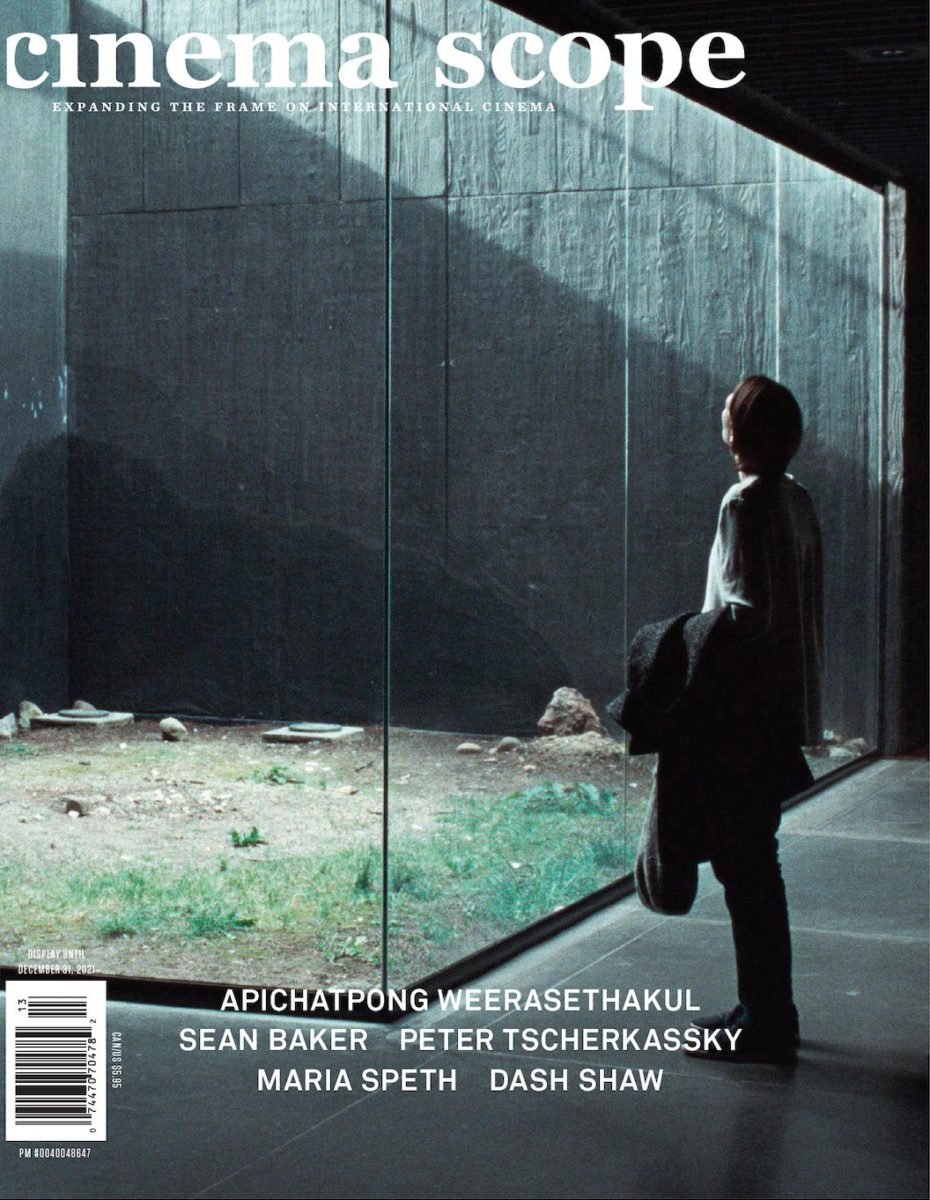
As the world of film criticism continues to evolve, this holiday we recommend supporting such outlets offering up some of the finest analysis and consideration—including Filmmaker Magazine, Cinema Scope, Sight & Sound, Little White Lies, ASC, and, through Issue 0 is already sold out, stay tuned to MUBI’s newly launched Notebook Magazine.
Our Favorite Blu-rays of 2021
After listing our favorite Blu-ray box sets above, check out a list of the best individual releases throughout the year below, plus 4K highlights.
Blu-rays

- After Life
- The Ascent
- Ashes and Diamonds
- But I’m a Cheerleader
- Bring Me the Head of Alfredo Garcia
- Celine and Julie Go Boating
- Center Stage
- Damnation
- The Damned
- Deep Cover
- Defending Your Life
- Dementia 13
- Devi
- Francisca
- The French Dispatch
- F.T.A.
- Hard Target
- Hill of Freedom and Woman on the Beach
- History is Made at Night
- Irma Vep
- JSA
- Mandabi
- Martin Eden
- Memories of Murder
- Mirror
- The Naked Spur
- Nightmare Alley
- Pickup on South Street
- La Piscine
- Poison
- The Power of Kangwon Province
- Pump Up the Volume
- Quick Change
- Radio On
- Ratcatcher
- Satantango
- Secrets & Lies
- Siberia
- Sicilia!
- Smooth Talk
- Son of the White Mare
- Southland Tales
- Straight Time
- Tesla
- Test Pattern
- To the Ends of the Earth (DVD only)
- The Train
- What Lies Beneath
- Working Girls
- Yourself and Yours
4K
